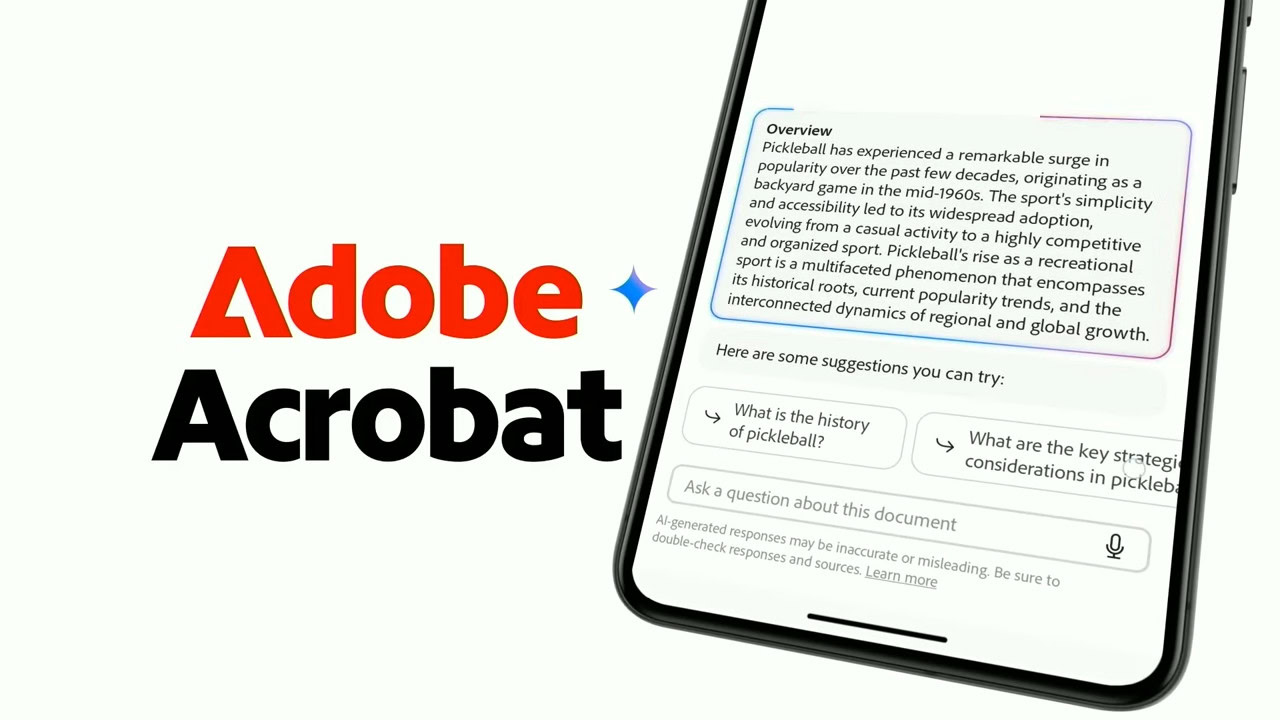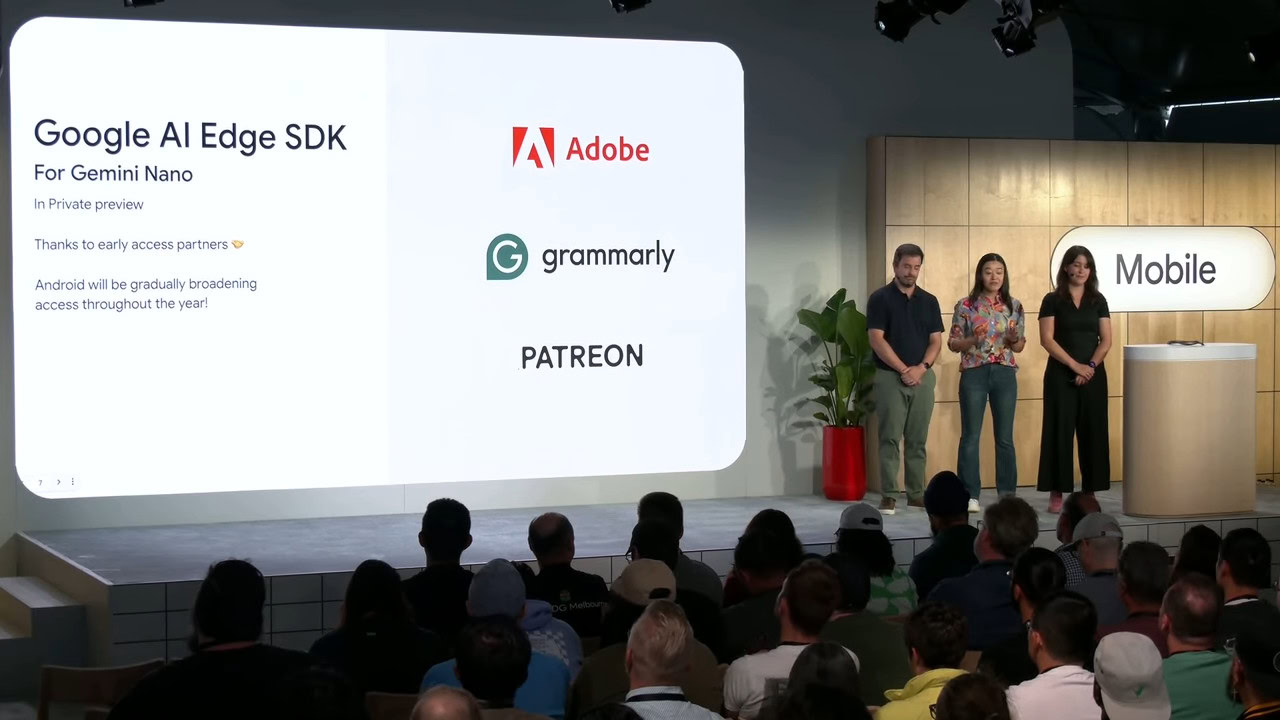
Mishaal Rahman / Android Authority
TL;DR
- Google says that Adobe is testing Gemini Nano support in Acrobat.
- Adobe Acrobat may use Gemini Nano to power on-device generative AI features like summarization, which is part of the Acrobat AI Assistant tool.
- Patreon and Grammarly are also working to add Gemini Nano-powered AI features to their apps.
Generative AI is the hottest trend in tech, and there are no signs of it slowing down any time soon. Just last week, Google spent the bulk of its Google I/O 2024 keynote talking up the company’s advancements in AI. The company focused mostly on showing off its own AI products, of course, but it also spared some time to showcase some of the work done by its partners. For example, Google teased the arrival of a new experience of Acrobat AI Assistant, Abode’s suite of generative AI features in Acrobat and Reader, that makes use of Gemini Nano.
Gemini, if you aren’t aware, is the branding for Google’s Large Language Model (LLM) and AI chatbot. There are multiple versions of the Gemini LLM: Nano, Pro, and Ultra. Gemini Nano is the smallest and least complex of the three models, which allows it to be run on mobile devices like the Google Pixel 8 Pro and Samsung Galaxy S24 series. While Gemini Nano isn’t suitable for tasks like powering a general-purpose AI chatbot, the current version is more than capable of processing small to medium blocks of text to provide summaries or suggested replies. That’s exactly why Google uses it to power the Pixel voice recorder app’s on-device summarization feature as well as Gboard’s smart replies in various messaging apps. Samsung also uses Gemini Nano to power some of its on-device Galaxy AI features.
To facilitate the deployment of Gemini Nano on devices, Google created a new system service in Android called AICore. AICore simplifies things for developers by handling Gemini Nano model downloads/updates and leveraging on-device hardware to accelerate inference when apps call the Gemini Nano API. This API can be called through the AI Edge SDK for Android, which is currently in private preview. During last week’s “What’s New in Android” presentation, Google revealed some of the companies it allowed to have early access to the AI Edge SDK for Android. These early adopters include Patreon, Grammarly, and of course, Adobe.
Gemini Nano in Adobe Acrobat

Mishaal Rahman / Android Authority
While Google didn’t reveal how Patreon or Grammarly will be using Gemini Nano, they did tease how Adobe plans to use it in Acrobat. From the brief teaser we were given, it looks like Adobe Acrobat will soon use Gemini Nano to summarize documents and let users ask questions about them. In the video that Google played, Adobe’s AI Assistant summarizes a PDF document titled “The Rise of Pickleball.” The demo shows a floating “AI Assistant” button that, when tapped, generates a short overview of the document. Some auto-generated follow-up questions are shown below the overview that the user can tap, but there’s also a text field where the user can ask any question about the document.
It’s unclear how much of this experience will be powered by Gemini Nano on-device versus another model in the cloud. The AI Assistant in Adobe Acrobat isn’t new, but it currently processes documents entirely in the cloud. Smaller models like Gemini Nano can’t handle super lengthy PDF documents like Gemini 1.5 Pro can, but they should be able to handle shorter documents. The exact word and page count of the PDF used in the demo wasn’t shown, but the document appeared to be a little over 20 pages. It’s possible the demo wasn’t representative of the actual on-device capabilities of the upcoming AI Assistant update, though, so we’ll have to wait and see how it fares once it rolls out.
The future of Gemini Nano
Google is set to debut a more powerful version of Gemini Nano, called Gemini Nano with multimodality, on its upcoming Pixel 9 series. Current Gemini Nano models come in 1.8B or 3.25B parameter sizes, while the new model will come in a 3.8B parameter size and also support audio and image processing. It’s unclear whether Adobe, Patreon, and Grammarly plan to make use of the upgraded model, but it’ll be interesting to see if they do. Hopefully, Google will open up the AI Edge SDK for Android to all developers soon so we can see what kind of features they build using Gemini Nano.
